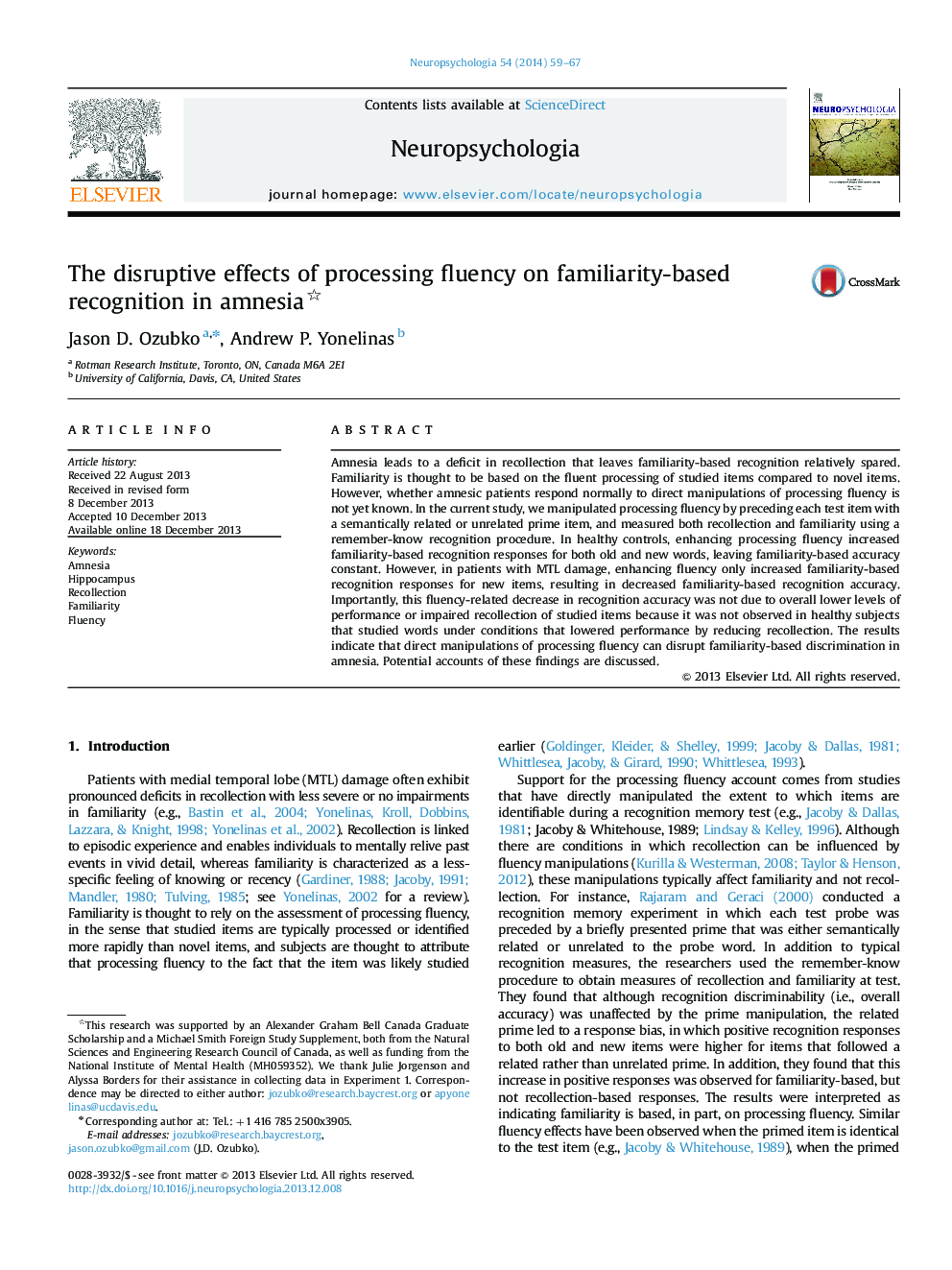| کد مقاله | کد نشریه | سال انتشار | مقاله انگلیسی | نسخه تمام متن |
|---|---|---|---|---|
| 944777 | 1475599 | 2014 | 9 صفحه PDF | دانلود رایگان |
• Compared to controls, amnesics have impaired recollection but spared familiarity.
• Processing fluency is known to contribute towards familiarity.
• We examined how amnesics respond to manipulations of processing fluency.
• Fluency manipulations impaired familiarity-based recognition in amnesics.
• Fluency manipulations did not impair controls, even if recollection was limited.
Amnesia leads to a deficit in recollection that leaves familiarity-based recognition relatively spared. Familiarity is thought to be based on the fluent processing of studied items compared to novel items. However, whether amnesic patients respond normally to direct manipulations of processing fluency is not yet known. In the current study, we manipulated processing fluency by preceding each test item with a semantically related or unrelated prime item, and measured both recollection and familiarity using a remember-know recognition procedure. In healthy controls, enhancing processing fluency increased familiarity-based recognition responses for both old and new words, leaving familiarity-based accuracy constant. However, in patients with MTL damage, enhancing fluency only increased familiarity-based recognition responses for new items, resulting in decreased familiarity-based recognition accuracy. Importantly, this fluency-related decrease in recognition accuracy was not due to overall lower levels of performance or impaired recollection of studied items because it was not observed in healthy subjects that studied words under conditions that lowered performance by reducing recollection. The results indicate that direct manipulations of processing fluency can disrupt familiarity-based discrimination in amnesia. Potential accounts of these findings are discussed.
Journal: Neuropsychologia - Volume 54, February 2014, Pages 59–67
